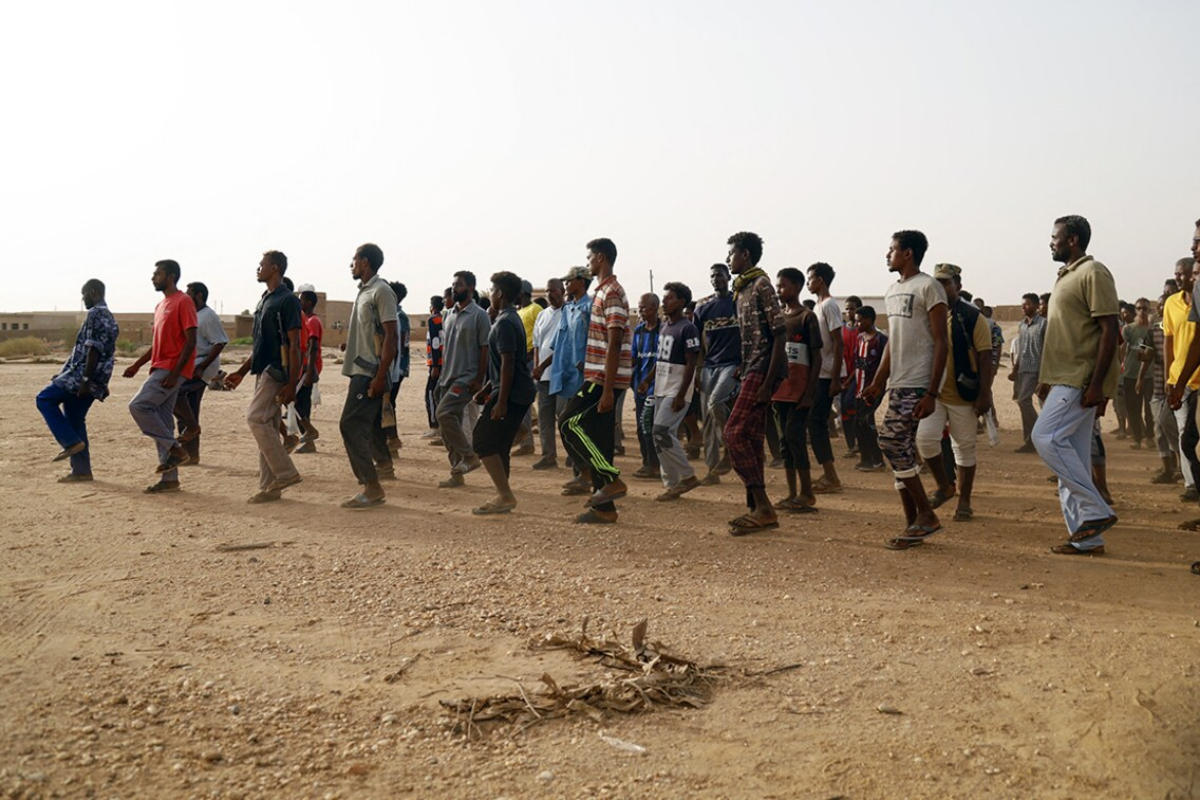- The paramilitary RSF attacks Wad Madani.
- Hundreds flee violence; the army launches airstrikes.
- The humanitarian crisis deepens.
Witnesses reported that on Saturday, Sudan’s paramilitary Rapid Support Forces engaged the army outside the central city of Wad Madani, pushing an attack that created a new front in the eight-month-old conflict and drove hundreds of people from their homes.
In videos shared on social media, large crowds of people could be seen packing up their stuff and walking away. Many of these individuals had sought safety in the city due to violence in the capital, Khartoum.
“The war has followed us to Madani so I am looking for a bus so me and my family can flee,” 45-year-old Ahmed Salih said.
“We are living in hell and there is no one to help us.” He said he planned to head south to Sennar.
Witnesses reported that while it attempted to rebuff the attack that began on Friday, the Sudanese army, which has controlled the city from the beginning of the conflict, launched airstrikes against RSF soldiers east of the city, the state capital of Gezira.
The witnesses said that the RSF retaliated with artillery and that they observed RSF reinforcements moving toward the area of combat.
In recent days and weeks, RSF soldiers have also been spotted in settlements west and north of the city, according to locals.
According to the UN, 14,000 people have left the region so far, and a small number of them have already made it to neighboring cities. Mostly from Khartoum, half a million individuals had fled to Gezira for safety.
In a statement, the Sudanese Doctors Union expressed concern that facilities in the region, which had developed into a center for medical and humanitarian aid, were starting to close.
Additionally, it stated that around 340 employees and kids moved from the
The relocation of the Maygoma orphanage in Khartoum required immediate assistance.
Tens of thousands of refugees have been seeking shelter in other army-held cities in southern and eastern Sudan, but the conflict has prompted concerns about these areas.
“I urge the RSF to refrain from attacks and for all parties to protect civilians at all costs. Perpetrators of terror will be held accountable,” the US Ambassador to the UN, Linda Thomas-Greenfield, said.
Last week, the army and RSF questioned an East African mediation effort meant to put an end to a conflict that has resulted in the world’s greatest internal displacement and warnings of conditions akin to famine.
Residents in cities taken over by the RSF in Darfur and Khartoum have alleged rapes, looting, and arbitrary killings and detentions. Additionally, the gang is charged with ethnic massacres in West Darfur.
The RSF has refuted these allegations and promised to hold those members of its troops accountable if they are discovered to have participated in such crimes.
On a different front, activists reported new conflicts following many weeks of relative quiet in and around El Fasher, the state seat of North Darfur.
The RSF forces around the city had earlier withdrew from their approach after threats from other armed organizations to intervene.
The army was also reportedly carrying out massive strikes in Bahri, one of the cities that together with Khartoum comprise the larger national capital, and Nyala, in South Darfur.
Sudan’s foreign ministry labeled the RSF as terrorists for their “declared attack on a number of safe villages and neighborhoods [in the] east of Gezira state which are devoid of military targets,” despite the army remaining silent on the battle in Wad Madani.
April saw the start of the conflict between the RSF and the Sudanese army amid disagreements over the two forces’ merger and democratic transition.
[embedpost slug = “/rsf-accuses-sudan-army-of-bombing-french-embassy/”]

















